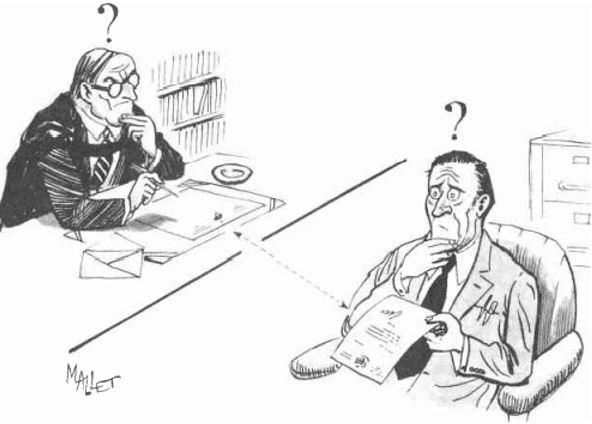

Grammar


Tenses


Present

Present Simple

Present Continuous

Present Perfect

Present Perfect Continuous


Past

Past Simple

Past Continuous

Past Perfect

Past Perfect Continuous


Future

Future Simple

Future Continuous

Future Perfect

Future Perfect Continuous


Parts Of Speech


Nouns

Countable and uncountable nouns

Verbal nouns

Singular and Plural nouns

Proper nouns

Nouns gender

Nouns definition

Concrete nouns

Abstract nouns

Common nouns

Collective nouns

Definition Of Nouns

Animate and Inanimate nouns

Nouns


Verbs

Stative and dynamic verbs

Finite and nonfinite verbs

To be verbs

Transitive and intransitive verbs

Auxiliary verbs

Modal verbs

Regular and irregular verbs

Action verbs

Verbs


Adverbs

Relative adverbs

Interrogative adverbs

Adverbs of time

Adverbs of place

Adverbs of reason

Adverbs of quantity

Adverbs of manner

Adverbs of frequency

Adverbs of affirmation

Adverbs


Adjectives

Quantitative adjective

Proper adjective

Possessive adjective

Numeral adjective

Interrogative adjective

Distributive adjective

Descriptive adjective

Demonstrative adjective


Pronouns

Subject pronoun

Relative pronoun

Reflexive pronoun

Reciprocal pronoun

Possessive pronoun

Personal pronoun

Interrogative pronoun

Indefinite pronoun

Emphatic pronoun

Distributive pronoun

Demonstrative pronoun

Pronouns


Pre Position


Preposition by function

Time preposition

Reason preposition

Possession preposition

Place preposition

Phrases preposition

Origin preposition

Measure preposition

Direction preposition

Contrast preposition

Agent preposition


Preposition by construction

Simple preposition

Phrase preposition

Double preposition

Compound preposition

prepositions


Conjunctions

Subordinating conjunction

Correlative conjunction

Coordinating conjunction

Conjunctive adverbs

conjunctions


Interjections

Express calling interjection

Phrases

Sentences


Grammar Rules

Passive and Active

Preference

Requests and offers

wishes

Be used to

Some and any

Could have done

Describing people

Giving advices

Possession

Comparative and superlative

Giving Reason

Making Suggestions

Apologizing

Forming questions

Since and for

Directions

Obligation

Adverbials

invitation

Articles

Imaginary condition

Zero conditional

First conditional

Second conditional

Third conditional

Reported speech

Demonstratives

Determiners


Linguistics

Phonetics

Phonology

Linguistics fields

Syntax

Morphology

Semantics

pragmatics

History

Writing

Grammar

Phonetics and Phonology

Semiotics


Reading Comprehension

Elementary

Intermediate

Advanced


Teaching Methods

Teaching Strategies

Assessment
Many Meanings
المؤلف:
L.A Hill
المصدر:
Intermediate Steps To Understanding
الجزء والصفحة:
46-1
7/11/2022
2064

Matthew Hobbs was sixteen years old. He had been at the same school for five years, and he had always been a very bad pupil. He was lazy, he fought with other pupils, he was rude to the teachers, and he did not obey the rules of the school. His headmaster tried to make him work and behave better, but he was never successful and the worst thing was that, as Matthew grew older, he was a bad influence on the younger boys.
Then at last Matthew left school. He tried to get a job with a big company, and the manager wrote to the headmaster to find out what he could say about Matthew.
The headmaster wanted to be honest, but he also did not want to be too hard, so he wrote, "If you can get Matthew Hobbs to work for you, you will be very lucky.'
A Which of these sentences are true (T) and which are false (F)? Write Tor F.
- Matthew had come to his school when he was eleven.
- He was always a good boy.
- The younger boys learnt good manners from him.
- Matthew got a job with a big company.
- His old headmaster got a letter from the manager.
- The headmaster answered the letter cleverly.
B Answer these questions:
- How did Matthew behave at school?
- What did his headmaster do about it?
- Did he succeed?
- What made things even worse?
- What did Matthew do when he left school?
- What did the manager of the company do?
- How did the headmaster feel about this?
- What did he write to the manager?
C Put the right sentences under the right pictures:
- He did not obey the school rules.
- He fought with other pupils.
- He was a bad influence on the younger boys.
- He was rude to the teachers.
- Matthew was a lazy boy.
- The headmaster wrote a clever answer.
- The manager wrote to his headmaster.
- Then he left school and tried to get a job in a company.
 الاكثر قراءة في Intermediate
الاكثر قراءة في Intermediate
 اخر الاخبار
اخر الاخبار
اخبار العتبة العباسية المقدسة

الآخبار الصحية















 قسم الشؤون الفكرية يصدر كتاباً يوثق تاريخ السدانة في العتبة العباسية المقدسة
قسم الشؤون الفكرية يصدر كتاباً يوثق تاريخ السدانة في العتبة العباسية المقدسة "المهمة".. إصدار قصصي يوثّق القصص الفائزة في مسابقة فتوى الدفاع المقدسة للقصة القصيرة
"المهمة".. إصدار قصصي يوثّق القصص الفائزة في مسابقة فتوى الدفاع المقدسة للقصة القصيرة (نوافذ).. إصدار أدبي يوثق القصص الفائزة في مسابقة الإمام العسكري (عليه السلام)
(نوافذ).. إصدار أدبي يوثق القصص الفائزة في مسابقة الإمام العسكري (عليه السلام)


















